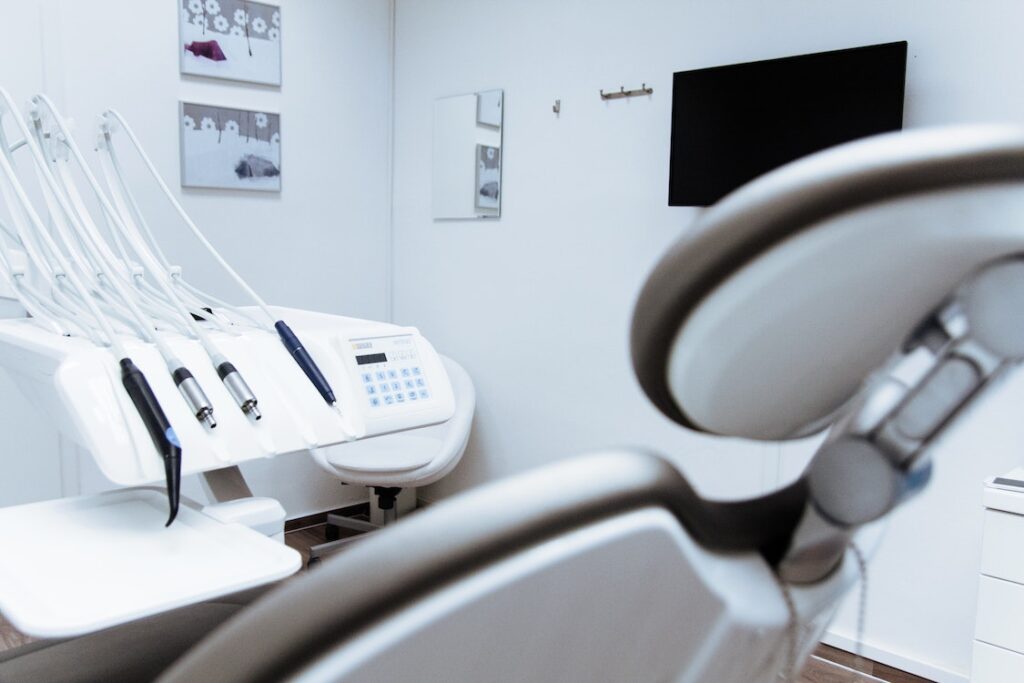
Oral health is essential, enabling us to eat, speak clearly, and express emotions through facial expressions. Furthermore, having healthy gums helps prevent serious illnesses like cancer, heart disease and diabetes.
Dental hygiene involves brushing and flossing regularly, visiting your dentist regularly for professional cleanings, using fissure sealants to protect teeth against decay, as well as disclosing any health conditions or medications that might impact upon it.
Maintaining a Beautiful Smile

By practicing regular brushing and flossing of teeth, eating a healthy diet and visiting the dentist for regular dental X-rays and cleanings, you reduce the risk of tooth decay, gum disease and bad breath (halitosis). But oral health matters to more than just maintaining an attractive smile: its importance lies within overall wellbeing.
Researchers are uncovering evidence linking certain conditions, like heart disease and diabetes, with oral issues like gum disease, tooth loss and infections – making proper dental hygiene even more essential than ever before.
Diabetes-related high blood sugar levels can reduce your body’s resistance to infection, making you more vulnerable to periodontal (gum) disease – something which increases your risk for heart and kidney complications related to the condition.
Other conditions related to oral health may include osteoporosis, rheumatoid arthritis and Sjogren’s syndrome – three immune system disorders associated with dry mouth. Patients suffering from such disorders must ensure good dental hygiene practices and receive regular dental examinations in order to remain in good health.
Dental checkups are essential, as your dentist can identify and address any minor concerns before they turn into more serious ones, such as gum disease or cavities. Left untreated, these issues could cause pain as well as more serious health concerns that require additional medical treatment.
Therefore, access to affordable dental care is absolutely vital. States must support innovative ways of providing it – including integrating oral health into primary care, expanding teledentistry services and encouraging qualified providers at federally qualified health centers – and investing in research that assists people navigate healthcare systems and understand basic health information.
Preventing Serious Illness
Poor oral health can severely restrict your ability to eat, speak and smile as well as lead to serious illness and lower your quality of life. Studies have linked poor dental hygiene with heart disease, diabetes and some chronic systemic conditions.
Good dental hygiene, healthy diet and regular visits to your dentist are essential in order to maintain good dental health and a bright and attractive smile. By following these practices regularly and sticking to them consistently, they can prevent tooth decay, gum disease and other dental ailments while also aiding in keeping an attractive appearance.
Regular dental visits enable your dentist to spot early warning signs of dental problems and treat them before they worsen, known as preventive dentistry – services often covered by basic or preventive dental insurance policies.
Your mouth is home to millions of bacteria, most of which are harmless. But if you neglect brushing or visiting the dentist regularly for professional dental cleanings, plaque – an invisible mix of food debris and bacteria – may build up, leading to inflammation in the gums and increasing your risk for other illnesses like diabetes, heart disease, stroke dementia or respiratory conditions.
Good dental health extends far beyond a beautiful smile and the ability to eat and communicate properly; it can help extend life span, avoid serious health problems and lower medical bills by strengthening natural defense mechanisms in your body. That is why good oral health should be prioritized for everyone and we encourage everyone to join us on March 20 for World Oral Health Day and pledge their efforts toward bettering it!
Preventing Tooth Decay
Tooth decay is an irreparable threat that must be guarded against through daily brushing, flossing, visiting the dentist regularly and eating nutritious food. Drinking plenty of water also promotes saliva flow which washes away bacteria that cause tooth decay.
Untreated cavities (known as caries by dentists) can result in pain and infections that interfere with eating, speaking and playing as well as be linked with other health problems such as heart disease and diabetes.
Professional dental care services can detect and address early warning signs of tooth decay, such as gum inflammation (gingivitis) and bad breath (halitosis), to stop further spread of bacteria that could damage other parts of the body.
Preventing tooth decay requires practicing good oral hygiene, such as brushing at least twice daily with toothpaste containing 1450ppm or higher fluoride content and flossing or using an interdental toothbrush to reach areas your regular toothbrush can’t.
Sugary drinks or snacks throughout the day provide fuel for mouth bacteria, giving it more power to produce acids which attack and wear down tooth enamel, leading to cavities. It’s wise to visit your dentist every six months for cleanings and examinations to identify any issues before they turn into major problems, like cavities that require fillings.
Studies indicate that children who suffer from poor oral health are more likely to miss school due to painful dental problems, which can have an adverse impact on their educational performance. These issues can easily be corrected through education about healthy eating and oral hygiene habits for kids as well as access to dental care for underserved populations, encouraging primary health practitioners to collaborate with dentists on coordination of care.
Preventing Gum Disease
Gum disease is a chronic bacterial infection of the gums and oral tissues that support teeth. It’s caused by an accumulation of plaque build-up on these structures, leading to tooth decay and other health complications. To combat gum disease effectively, practicing good oral hygiene such as brushing your teeth at least twice daily and flossing on a regular basis as well as seeing your dentist regularly for cleanings and checkups is key to prevention as noted on westsidedentalgr.com.
Many people avoid visiting the dentist due to fear or past bad experiences. It’s important to keep in mind that dentistry is an integral component of healthcare; it plays an essential role in diagnosing, treating, preventing, or maintaining dental diseases or conditions which affect overall systemic wellbeing.
Poor oral health can be an early indicator of serious illness in the body and serve as a major risk factor for certain diseases. Furthermore, poor dental health may worsen existing medical problems and lead to higher medical expenses.
Although there exists an acknowledged gap between oral health care systems and general healthcare services, state and federal programs can help increase access to care by increasing the number of dental and primary care providers. These programs can train dentists, dental hygienists and assistants as well as provide services that assist patients with oral care needs. Furthermore, these partnerships between dentists, physicians and other providers may foster community partnerships between dental care and oral healthcare providers. Collaboration can increase the effectiveness of oral and overall health care. It is particularly critical in rural and low-income communities where access to dental services may have serious health and economic ramifications for individuals and their families. Furthermore, this type of collaboration can address barriers such as shortage of dentists or multiple insurance systems making patient coordination challenging.
Preventing Bad Breath
The mouth is an integral part of one’s body, and must be maintained in good condition. Being attuned with dental health is one of the cornerstones of happiness and health; maintaining it through regular brushing, flossing and dental checkups as well as avoiding foods like onions and garlic that could contribute to bad breath as well as adopting a nutritious diet are essential steps toward living an improved life.
Bad breath (halitosis) is an increasingly prevalent issue, caused by various foods, health conditions and poor oral hygiene practices. If persistent halitosis persists despite your best efforts to address it yourself, seek medical advice from your dentist; they may suggest various treatment solutions, including antiseptic mouth rinses that kill bacteria.
Good oral hygiene is key to avoiding bad breath. This involves brushing twice daily for two to three minutes using fluoride toothpaste and cleaning the gums and tongue, using floss daily or an interdental cleaner, and flossing between teeth, which can remove food debris that causes bad breath as well as eliminate bacteria that causes bad smells.
Regular dental visits allow dentists to identify and address potential problems early, before they develop into more serious situations such as tooth decay, gum disease or other dental conditions which could eventually lead to medical issues. Regular check-ups also can detect issues like gum disease which could be the precursor for more serious diseases down the line.
Studies have also demonstrated that those with good oral health have reduced risks of heart disease and other systemic illnesses, so keeping up with regular dental care as advised by your dentist, such as brushing, flossing and checkups is worth its weight in gold! So remember the old saying “an ounce of prevention is worth a pound of cure,” so make sure you stay on top of your dental schedule by following their advice for brushing, flossing and checkups – they will certainly pay dividends!
